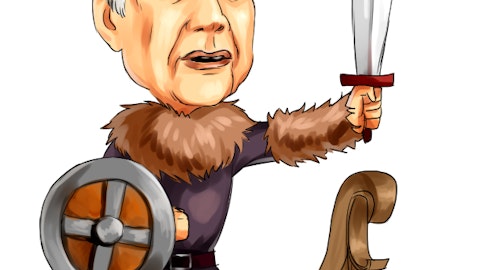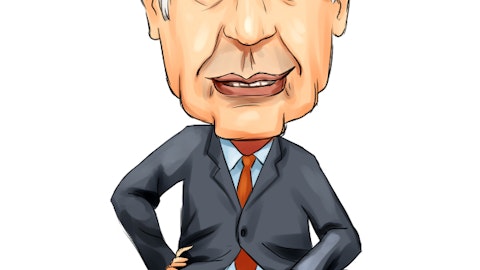Although the average hedge fund has been struggling to beat broader market benchmarks in recent years, the hedge fund industry as a whole has been constantly growing. The hedge fund industry is also giving birth to more and more billionaires, while the stock market appears to be rewarding hedge fund managers for their exceptional skills and knowledge. It is true that hedge funds have not met expectations over the past several years when it comes to performance, so will 2016 mark a turnaround for the smart money industry? Let’s wait and see. Moving on to the underlying purpose of this article, we will be discussing three filings submitted by Kevin Kotler and billionaires Carl Icahn and Mark Lasry.
Imitating hedge funds and other institutional investors can help identify some of the most profitable stocks on the market. However, our extensive research that covered the period between 1999 and 2012, showed that the best approach is to follow these investors into their small-cap stocks. Our backtests showed that the 15 most popular small-cap stocks among hedge funds managed to generate a monthly alpha of 81 basis points, versus an alpha of 0.7 percentage points posted by their top 50 large-cap picks (see more details here).
As revealed by a newly-amended 13D filing, Icahn Capital LP currently owns 92.38 million shares of Xerox Corp (NYSE:XRX), which make up 9.12% of the company’s outstanding common stock. This compares with the stake of 82.31 million shares revealed by Icahn through his fund’s previous 13D filing on Xerox, which was submitted with the SEC in mid-December 2015. Earlier this morning, Xerox announced its decision to split into two publicly-traded companies, a Document Technology company and a Business Process Outsourcing (BPO) company. Furthermore, Xerox and Carl Icahn announced that they reached an agreement that relates to the governance of the BPO company, which stipulates that Xerox will appoint six directors to the soon-to-be created company’s Board, while the activist investor will select three directors. The Document Technology company is set to retain its industry leading role in document management and document outsourcing, while the BPO company will continue to provide services that manage customers’ business activity and process. Although Icahn was not the one who came up with “the split” idea (or at least he didn’t publicly advocate this move), he applauded the company’s decision by saying “I applaud and respect Ursula Burns [Xerox’s CEO] for doing what she believes shareholders want”. The reasoning behind the decision to split Xerox Corp (NYSE:XRX) into two separate companies is that the aforementioned businesses serve different client needs, have different growth drivers, and need personalized operating models and capital structures. Xerox anticipates that the split will be completed by the end of 2016. Meanwhile, Xerox shares have jumped by more than 5% so far in today’s trading session, but are still down by 27% over the past year. Brian Jackelow’s SAB Capital Management acquired a 4.49 million-share stake in Xerox Corp (NYSE:XRX) during the third quarter.
Follow Carl C. Icahn's Icahn Capital LP
The second page of this article discusses two other filings submitted with the SEC.




